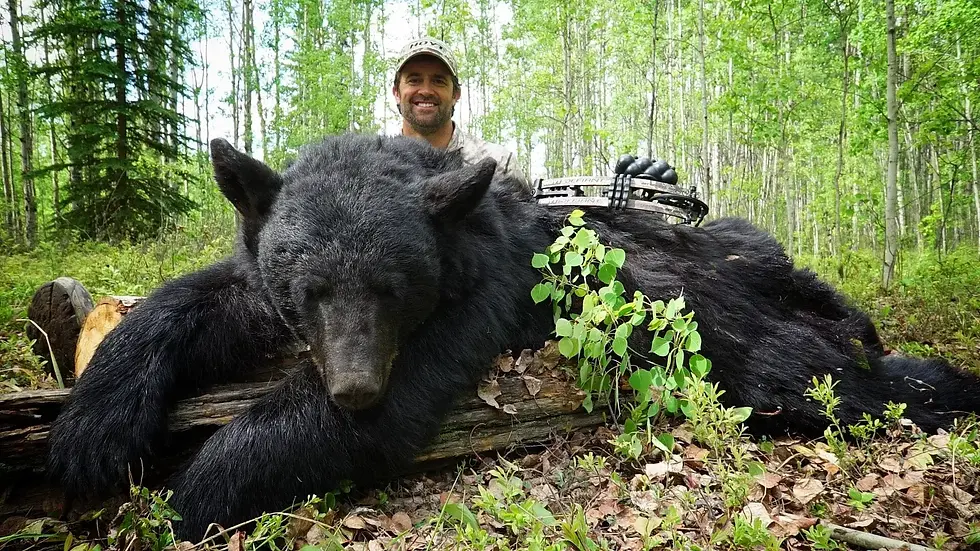Can Americans Hunt in British Columbia? What You Need to Know
- wildlingsresort
- Aug 6, 2025
- 4 min read

British Columbia (BC) is widely known for its rugged landscapes, vast wilderness, and rich wildlife, making it one of North America's premier hunting destinations. For American hunters seeking something beyond the familiar, BC offers a variety of big and small game, challenging terrain, and unforgettable outdoor experiences.
In recent years, there's been a noticeable increase in interest from U.S. citizens wanting to hunt north of the border. Whether it’s the thrill of pursuing mountain lions or the chance to track moose in the dense forests, BC is calling. But before you pack your gear and head out, it’s important to understand the rules and logistics of international hunting.
Is It Legal for Americans to Hunt in British Columbia?
Yes, it is absolutely legal for Americans to hunt in British Columbia. However, there are specific cross-border regulations and provincial guidelines that must be followed. International hunting laws allow non-residents to hunt in Canada, provided they meet the requirements set by federal and provincial authorities.
BC's Ministry of Forests, Lands, Natural Resource Operations and Rural Development welcomes non-resident hunters through a clear and structured process. That said, understanding these laws and following the correct steps is essential to avoid legal issues or denied entry at the border.
Licensing Requirements for U.S. Hunters
To hunt in British Columbia as an American citizen, you’ll need a Non-Resident or Non-Resident Alien hunting license, depending on your immigration status and residency.
Here’s what you’ll need:
A valid hunting license from BC (purchased online or via a licensed outfitter)
Species-specific tags (e.g., for elk, moose, or cougar)
Wildlife Conservation Fee (usually included with the license)
How to Apply: Many outfitters assist clients in securing licenses, but you can also apply directly through the BC government’s hunting portal. Prices vary by species but expect to pay between CAD $180–$400, plus tag fees. Most licenses are valid for a single hunting season.
Species Available for Hunting in BC
BC boasts a wide variety of huntable species, which is part of what makes it such an attractive destination.
Big Game:
Black Bear: Common in most regions; spring and fall seasons
Moose: Found in the interior and northern BC; requires special tags
Mountain Lion (Cougar): Challenging hunts with dogs; popular in winter
Elk: Rocky Mountain elk and Roosevelt elk available
Mountain Goat: High-elevation hunts requiring strong fitness
Small Game & Waterfowl: Regulations vary by region. Upland birds and ducks are huntable, but require separate licensing.
Tag Requirements: Each species requires a tag, which can be purchased once your license is secured. Note: Some tags are limited or lottery-based.
Do Americans Need a Guide-Outfitter?
Yes. If you are classified as a Non-Resident Alien (which most Americans are), BC law mandates that you must hunt big game under the supervision of a licensed guide-outfitter.
Benefits of Hiring an Outfitter:
Handles licenses, tags, and logistics
Provides gear, meals, and accommodations
Increases chances of success due to local knowledge
You can verify a registered outfitter through the Guide Outfitters Association of British Columbia (GOABC) or provincial government resources.
Weapon and Import Regulations
Bringing firearms into Canada is allowed for hunting, but you must declare them upon entry.
What You’ll Need:
What You’ll Need:
Non-Resident Firearm Declaration Form (RCMP 5589)—filled and signed
Fee of CAD $25 at customs
Ammunition must be stored separately and declared
Note: Handguns and certain semi-automatic firearms are prohibited in Canada. Check with the Canadian Firearms Program before traveling.
Border Crossing Tips for Hunters
Crossing into Canada as a hunter involves more paperwork than a typical road trip.
Key Documents to Bring:
Passport
Hunting license (or confirmation of purchase)
Firearm declaration forms
Outfitter booking confirmation
Species tag receipts (if already purchased)
Returning to the U.S. with meat, antlers, or hides? Be sure to check with U.S. Fish & Wildlife Service and Customs and Border Protection about declaration procedures and required permits.
Best Times of Year for Hunting in BC
Hunting seasons vary by species:
Spring: Black bear
Fall: Elk, moose, deer, small game
Winter: Cougar, lynx
Book well in advance—many outfitters are fully reserved a year ahead. Weather can be unpredictable, especially in mountain regions, so plan for sudden changes.
Travel and Logistics for American Hunters
Getting to BC is relatively straightforward:
Major Airports: Vancouver (YVR), Prince George (YXS), Kelowna (YLW)
Land Crossings: Popular points include Sumas, Blaine, and Sweetgrass
Outfitters often provide airport pickup and transport to hunting areas. Remote hunts may require float planes or ATVs. Confirm all logistics when booking.
Always leave a trip plan with someone back home, and carry emergency contacts like the BC Conservation Officer Service.
Final Tips for a Successful BC Hunt
Start planning 6–12 months ahead
Double-check your licenses, tags, and firearm documents
Hire a reputable guide-outfitter
Respect all conservation laws and indigenous land rights
Practice wilderness safety and prepare for rugged conditions
Make British Columbia Your Next Hunting Destination
For American hunters, British Columbia offers one of the most rewarding and adventurous experiences in North America. With the right planning, permits, and outfitter, your BC hunting trip can be safe, legal, and unforgettable.
If you're ready to explore Canada’s wild side, now is the time. Visit the BC hunting regulations page or check out the Guide Outfitters Association of British Columbia to begin your journey today.




Comments